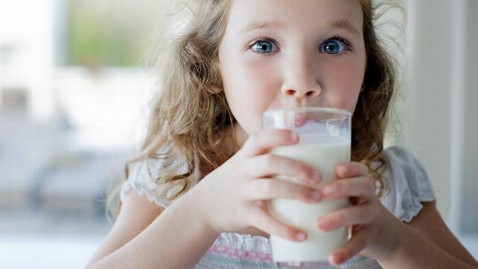Organic Food for Kids: Buy This, Not That

(Image credit: Getty Images/OJO Images)
Feeding your kids organic foods may be worth the extra cost for some foods but not all, says the American Academy of Pediatrics (AAP), which found lower pesticides in organic produce but found no individual health benefit from purchasing organic milk.
The professional association of pediatricians analyzed research around organic produce, dairy products and meat and said in a statement that "the conclusion is mixed."
The AAP found that organic foods have the same vitamins and minerals as conventional foods. But organic foods have lower pesticide levels, which may be significant for children.
The report, scheduled to appear in the November issue of the organization's journal, also says that organically raised animals are less likely to be contaminated with drug-resistant bacteria because organic farming rules prohibit the non-therapeutic use of antibiotics.
But in the long term, the AAP said there is no direct evidence that eating organic leads to improved health or lower risk of disease.
The report reviewed studies conducted on produce, meat and milk, some of which conducted in Europe.
"Several studies have demonstrated that organic milk has higher concentrations of antioxidants and polyunsaturated fatty acids," the report states. "However, it is important to recognize that the composition of milk is strongly related to what cows eat. This differs by time of year (outdoors in the summer, indoor forage in the winter) and whether the farms are high or low input."
The report later states, "There is no evidence of clinically relevant differences in organic and conventional milk."
This is the first time the AAP has weighed in on organic foods, which can cost 10 to 40 percent more than conventional products, according to a 2006 study in the Journal of Food Science.
The price difference between organic and conventional food may be reduced or eliminated as organic farming techniques advance and as the price of petroleum products, like pesticides and herbicides, increase, the AAP wrote.
Dr. Philip Landrigan, pediatrician, epidemiologist and professor of preventive medicine at Mount Sinai School of Medicine, said he "strongly" agreed with the report's finding regarding the potential benefits of feeding children organic foods.
"Children who eat a largely organic diet have 90 percent lower levels of pesticides in their bodies than children who eat conventionally grown, or pesticide-treated, food," Landrigan wrote in an email.
Charles Benbrook, professor at Washington State University, commented in his blog post about the study, wrote that finding no "clinically significant difference" does not mean there are no health benefits from consumption of organic food.
"For pregnant women and children, consumption of organic food tips the trajectory of population-wide health outcomes in a more health-promoting direction," he wrote. "By how much, no one knows. Long-term clinical trials involving consumption of organic food from at least six months before conception and on through the adolescence, will be necessary to begin sorting out what initially triggers or sets the stage for disease, and which factors then come into play in preventing or slowing the progression of disease. "